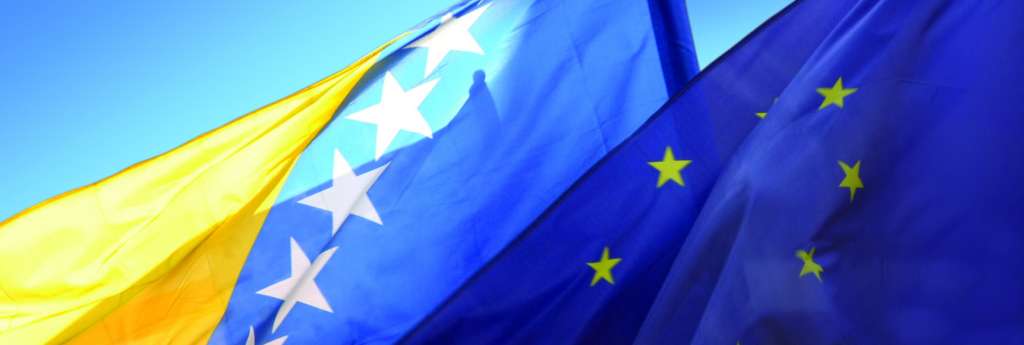“`html
Sarajevo (Fena) – In the year coming to an end, several important steps forward were made, but Bosnia and Herzegovina still faces numerous challenges on its path towards membership in the European Union. Political disagreements and the slow pace of reforms continue to hinder the implementation of necessary measures to align with European standards.
The year 2024 in Europe was marked by the European Parliament elections, and the expansion topic took a prominent place in political campaigns. The war in Ukraine significantly influenced the attitudes of Western European countries, accelerating the consideration of membership for Ukraine, but also for other countries, including Bosnia and Herzegovina.
The President of the European Commission, Ursula von der Leyen, announced that EU enlargement will be the basic priority of the institution she will lead again in the new mandate until 2029. This sent a strong message that the integration process of new members will be one of the key goals of the EU’s future policy.
At the annual summit of six Western Balkan countries and European Union leaders, positive messages were sent about the prospect of enlargement, and in the rhetoric of European leaders, 2030 was mentioned as a possible framework for achieving this goal, leaving room for further negotiations and adjustments.
In March 2024, the Council of the European Union gave the green light for the conditional opening of accession negotiations with Bosnia and Herzegovina. This decision marked a positive shift on the European path, the continuation of the process started in 2023 when BiH received candidate status. However, concrete progress depends on the implementation of the remaining reforms.
At the beginning of the year, the Law on the Prevention of Money Laundering and Financing of Terrorist Activities was adopted, fulfilling another condition for opening negotiations with the European Union and avoiding placement on Moneyval’s grey list.
Recently, the Council of Ministers of Bosnia and Herzegovina adopted the laws on border control and personal data protection, which were forwarded for consideration to the Parliamentary Assembly of BiH. These laws, marked with the designation “EI” affirming their compliance with the EU’s legal framework, represent key priorities on BiH’s European path. With their adoption, the Council of Ministers has taken significant steps toward obtaining a date for the opening of accession negotiations for BiH to the EU.
The Border Control Bill, proposed by the Ministry of Security of BiH, aligns border management with the EU’s legal framework, fulfilling strategic objectives from the Integrated Border Management Strategy in BiH. Meanwhile, the Personal Data Protection Bill aligns with the 2016 EU Regulation, introducing internationally recognized standards for data processing and free movement.
While significant, these moves are partial because many other important laws remain pending, such as the Law on Courts and the High Judicial and Prosecutorial Council (HJPC). Aside from legislative challenges, BiH has yet to appoint a chief negotiator with the EU or a coordinator for IPA funds, which are key steps for unlocking financial aid and enabling the negotiation framework.
The lack of progress on the European path of Bosnia and Herzegovina brings serious economic consequences. Namely, BiH is the only country in the Western Balkans to which the European Commission has not approved a reform program. The EU still keeps the doors open, but political discord obstructs access to a fund worth six billion euros.
Of the 113 conditions set by the EU, 110 have been agreed upon, while key issues such as the Constitutional Court reform, the entity veto, and the single emergency number remain unresolved. Although the emergency number was finally agreed upon, it was not enough for the approval of the first tranche of 70 million euros.
Meanwhile, aligning BiH’s visa regime with the European Union has become a key condition for obtaining funds, further complicating the situation, as political conflicts remain the main cause of delays in fulfilling the remaining obligations.
One of the biggest problems is the status of the Constitutional Court and foreign judges. The European Union demands that the Republic of Srpska appoint two domestic judges by July next year and that by the end of 2025, a process be opened to decide on the status of three foreign judges. However, RS Prime Minister Radovan Višković deemed this proposal unacceptable.
At the same time, the Republic of Srpska made a positive step by removing the entity veto in the State Aid Council and the Competition Council of BiH.
On the other hand, the Federation of BiH faces problems at the cantonal levels. Attempts to harmonize the Reform Agenda, a key document for accessing funds from the Growth Plan for the Western Balkans, failed because cantonal prime ministers from SDA oppose easing the criteria for using these funds.
Although significant steps towards European integration were taken during 2024, Bosnia and Herzegovina faces serious challenges. The key to success lies in political stability and the readiness of local leaders to implement necessary reforms. The European Union remains ready to provide support, but the future of Bosnia and Herzegovina’s European path depends primarily on the country’s internal readiness for change. (1.1.)
“`
 go to the original language article
go to the original language article
